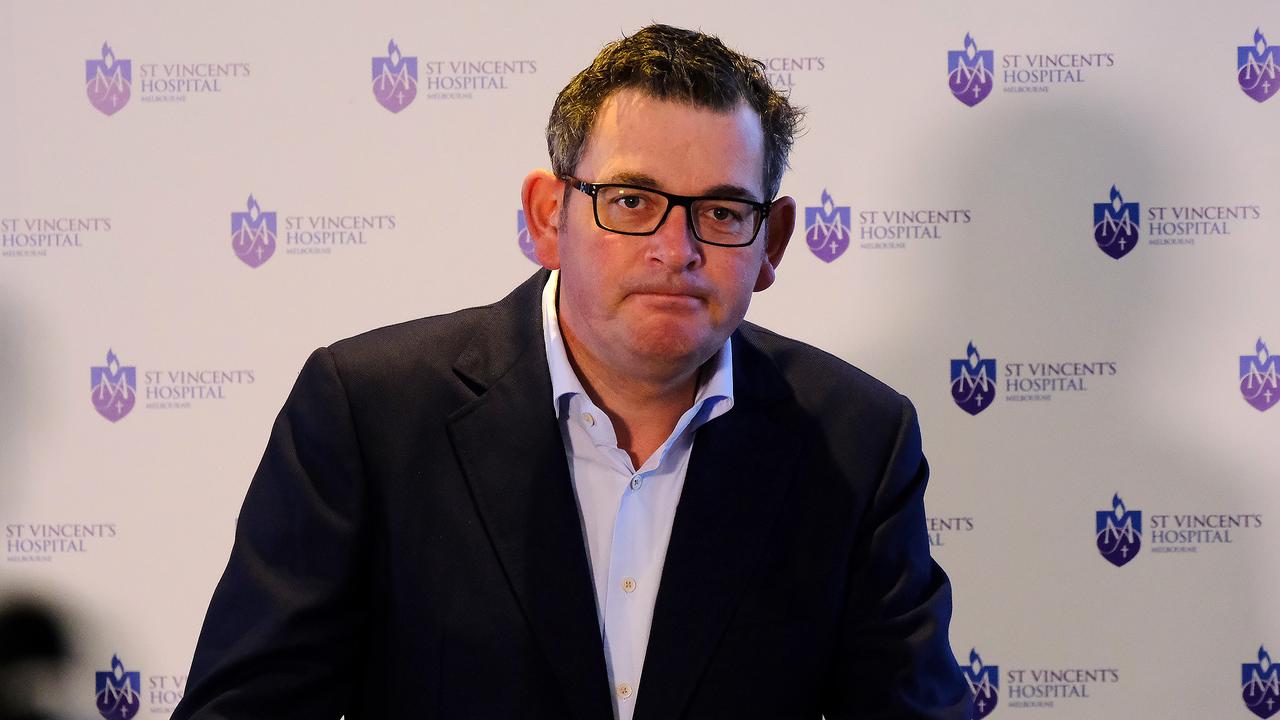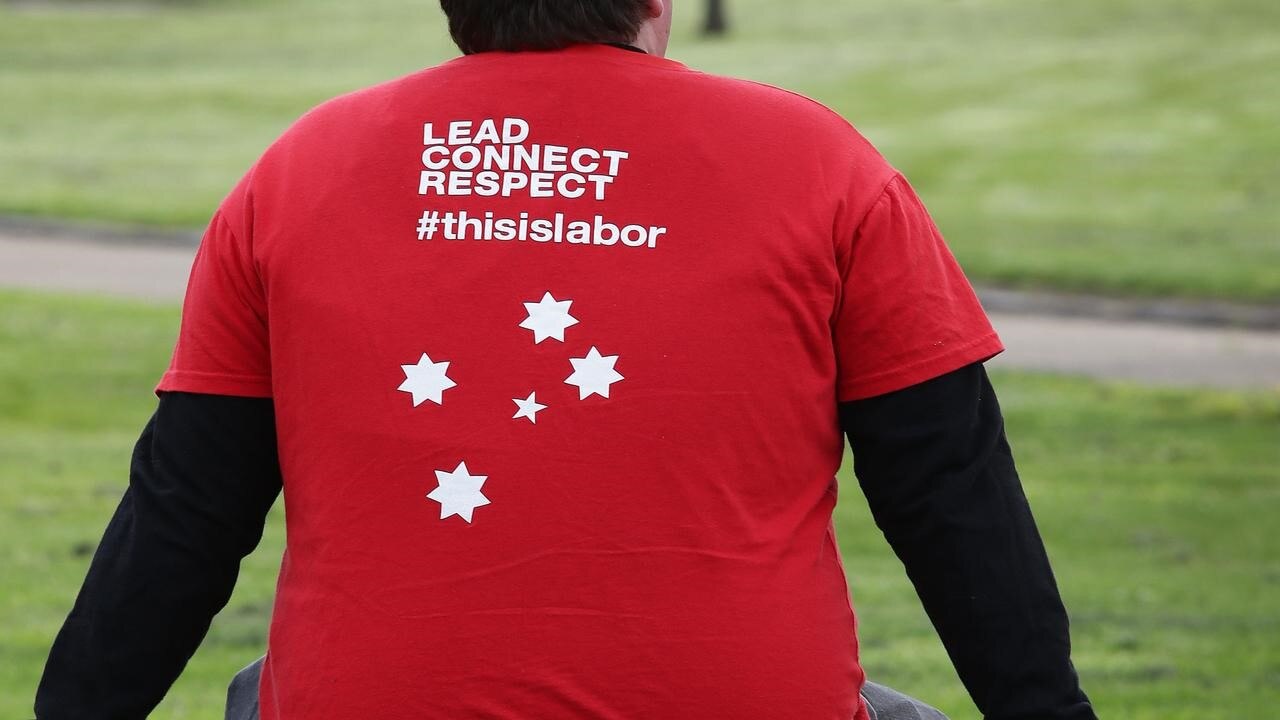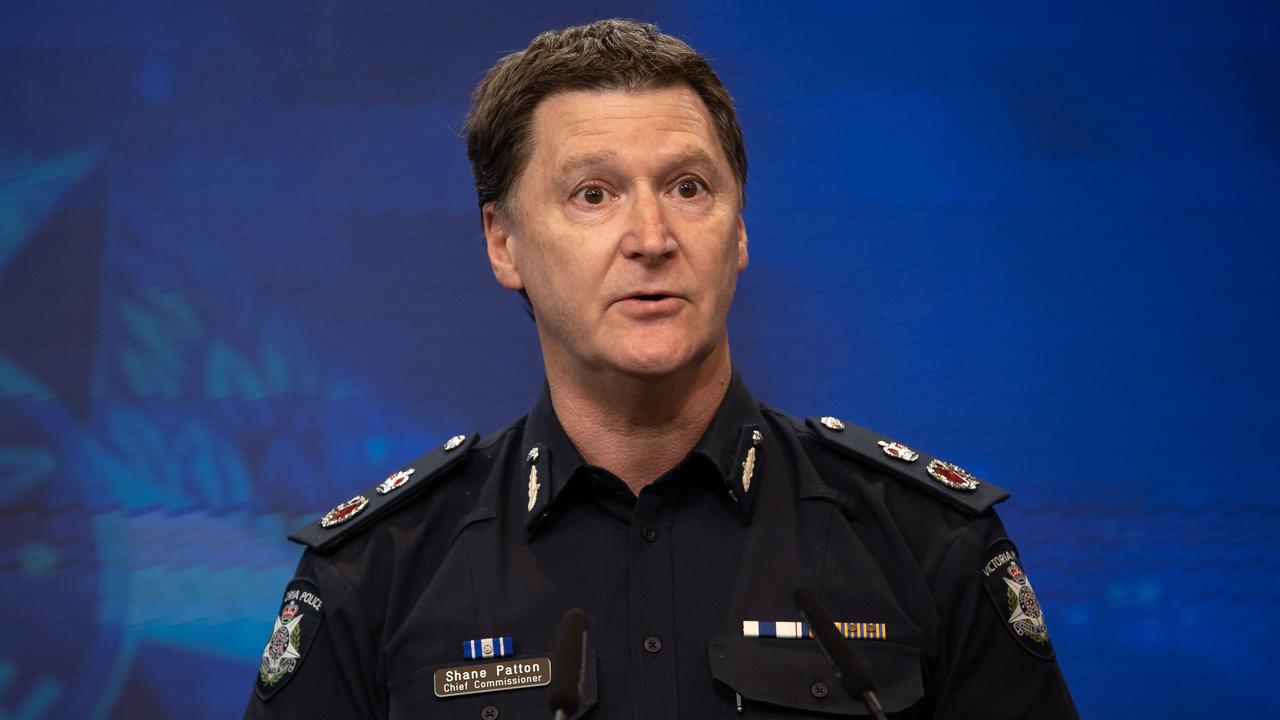Fresh red shirts rort probe closed, but warning that without reform scandal is ‘unlikely to be the last’
Daniel Andrews says he doesn’t need to feel “vindicated” by the latest probe as the state’s watchdog says parliament must act or “these scandals are unlikely to be the last”.

Victorian Ombudsman Deborah Glass has closed the book on Labor’s 2014 red shirts rorts, declaring there is no new evidence of criminality or corruption to warrant further action.
The rort, which saw Labor siphon money from parliamentary budgets in 2014 to pay for election campaign staff who wore red shirts, was slammed by Ms Glass as “wrong” and an “artifice” in 2018.
But a motion in the Legislative Council this year, from fallen ALP powerbroker Adem Somyurek, forced the Ombudsman to reconsider the saga in light of a separate anti-corruption probe into misuse of public funds.
Daniel Andrews says he doesn’t need to feel “vindicated” by the Ombudsman’s latest probe into the 2014 red shirts scandal.
The Premier also refused to say whether Victoria Police should apologise for arresting 17 people.
“That’s entirely a matter for Victoria Police,” he said.

In a statement from Victoria Police on Thursday, the force said it had acknowledged Deborah Glass’s latest report.
“In particular, we note the Ombudsman’s conclusion that there is no evidence to justify further investigation by Victoria Police or referral to IBAC,” it said.
“Victoria Police considers this matter closed and will not be reinvestigating.”
Mr Andrews echoed a similar sentiment, stating the Red Shirts rort, exposed by the Herald Sun, had already been “well canvassed”.
“These matters were dealt with comprehensively years and years ago and I’ve got nothing further to add,” he said.
“I’ve got not much to say about it. I’ll let the report speak for itself.
“I’m not here to provide a commentary on the commentary.”
“I don’t think there’s anything to be gained by me going back over these issues.”
Asked if he felt vindicated by Ms Glass’s finding that he did not oversee the scheme, Mr Andrews said: “I don’t spend time worrying about things like that.
“I’m focused on the future not the past,” he added.
Ms Glass said two police investigations, advice from the Department of Public Prosecutions, and her own assessment had found that although the red shirts scheme was wrong, there was not enough proof of criminality to lay charges or prove corruption.

Mr Somyurek had alleged that Premier Daniel Andrews had been a central figure in the rort, or at least aware of its dodgy origins, but Ms Glass said there was no compelling evidence he had been involved in setting up the “artifice” that ripped off taxpayers.
“The evidence showed that Mr Andrews was involved and immersed in the Red Shirts campaign in 2014, as he necessarily would have been as party leader,” she writes.
But she says the initial investigation into the scheme and subsequent reassessment “found no evidence of Daniel Andrews designing, propagating, or facilitating the red shirts scheme”.
The principal architect of the rort was former Brumby government treasurer John Lenders, who Ms Glass said “acted with deliberate disregard for the Members’ code of conduct in establishing the scheme”.
But she said no one could establish the actions were “wilful” and therefore criminal, while the “unsatisfactory state of the law in relation to the misuse of public funds” meant charges would collapse.
Mr Lenders this week stood down from Labor’s 2022 campaign committee because of the refocus on the rort, declaring he didn’t want to be a “distraction”.
Part of the reason Ms Glass decided against pursuing the rort further was that the amount of time gone past would allow Labor MPs to reasonably argue they could not recall their involvement in the scheme in 2014.
Ms Glass and the Independent Broad-based Anti-corruption Commission found last week that since her initial report on red shirts, insufficient action had been taken by parliament to close loopholes in how public funds could be used, emboldening some MPs – including Mr Somyurek – to use staff for party political reasons.

Mr Andrews committed last week to finally closing loopholes in parliamentary entitlements, which he initially said would be fixed in 2018 when $388,000 was repaid by the ALP for the 2014 rort, and apologised for ongoing behaviour.
In her report released on Thursday, Ms Glass criticised the police response to her original assessment.
In 2018, Ms Glass inferred to then-chief commissioner Graham Ashton there was little point in reopening a police probe – which had found no criminality in 2015 – into the red shirts scheme because there was insufficient evidence for charges.
Despite this a fresh probe was opened and officers raided the homes of almost two-dozen Labor staff members who were employed by MPs in 2014.
Described as a “dawn raid” and including strip searches of some young staffers, there were no raids of MPs houses, despite them being the employers of the campaign staff.
Ms Glass said she earlier this year met with Chief Commissioner Shane Patton to discuss the new parliamentary referral on the red shirts matter, and review advice the force had received during the initial probe.

This included the Director of Public Prosecutions advice that charges based on misconduct in public office or fraud allegations were unlikely to stick.
“The advices of the Director of Public Prosecutions are robust and unequivocal that there were no reasonable prospects of conviction in respect of any of the proposed charges, despite the view of the investigating officers that the evidence was sufficient to bring charges against at least some of the people involved,” she writes.
“There is no suggestion that any further investigative work by the police would change this advice.”
Ms Glass said her initial investigation found that the red shirts scheme “was an artifice, and wrong”.
“I also concluded that 21 Members of parliament who participated in it had breached Parliament’s Members’ Guide,” she said.
“But I did not conclude it was criminal. Nor did Victoria Police in its initial assessment, or the Director of Public Prosecutions in a later assessment. Nor was it corrupt, as defined by the IBAC Act.”
She said it was crucial reforms to parliamentary entitlements and integrity promised by the Andrews Government last week were properly implemented, however, to stop further rorts.
“Until these matters are addressed with the necessary rigour, these scandals are unlikely
to be the last,” she writes.




